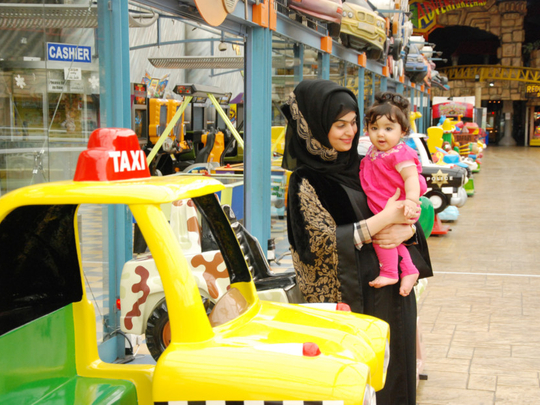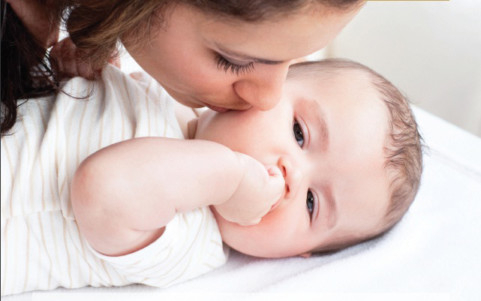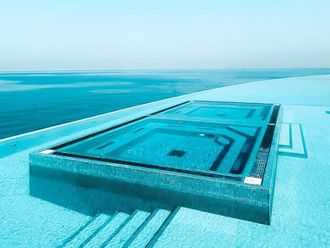
Sharjah: The emirate of Sharjah is playing a leading role in creating an ideal environment for women to fulfil their aspirations, be it achieving success in the workplace or retaining a strong maternal influence at home, a Sharjah official has said.
The welfare of women is one of the government’s top priorities and the emirate’s maternity leave policy is helping women pursue their careers without having to sacrifice the joys of motherhood, said Dr Hessa Al Gazzal, Executive Director of Sharjah Baby-Friendly Emirate Campaign.
His Highness Dr Shaikh Sultan Bin Mohammad Al Qasimi, Member of the Supreme Council and Ruler of Sharjah, by issuing a groundbreaking decree, revised the total period of maternity leave allowance in Sharjah up to 120 days (comprising 90 paid and 30 unpaid days) — an unprecedented legislative undertaking providing for maternity leave in the UAE. It also acknowledged the fundamental role of fathers and their need to have time away from the workplace during one of the most important events in every man or woman’s life.
“The new legislation was enacted in part in recognition of the importance of mothers bonding with their new-born babies for a sufficient period of time, without having to worry about the implications of returning to work so soon after giving birth. The legislation will allow mothers to spend more quality time during the first few critical months of a new-born’s life to adjust to their new role, and get to forge a bond with their baby that will return a lifetime of benefits for both mother and baby,” said Dr Al Gazzal, recognising the crucial phase of parenting right after birth.
The decision to develop a corporate environment that would better enable women to achieve long-term careers in the industry was a significant milestone at a time when the country’s federal labour laws allowed 60 days of paid leave in the public sector and 45 days of paid leave in the private sector.
Dr Al Gazzal said that Shaikh Sultan’s leading position in supporting working women in Sharjah has meant that the emirate’s development model is being shaped in a way that places the welfare of women as one of the government’s top priorities.
A legislation issued in 2014 granted mothers two continuous hours of breastfeeding time every day for the first six months post their maternity leave, and an hour for the following six months. It also recognised fathers’ rights by permitting three days of paternity leave.
Dr Al Gazzal said that Shaikh Sultan’s patronage led to the establishment of four standards under the Sharjah Baby-Friendly Emirate Campaign, which was launched by Shaikha Bodour Bint Sultan Al Qasimi, Chairperson of Sharjah Investment and Development Authority (Shurooq), in 2012, namely, ‘Baby-Friendly Health Facility,’ ‘Mother-Friendly Workplace,’ ‘Breastfeeding-Friendly Nursery,’ and ‘Mother-Baby Friendly Public Places,’ which were implemented by organisations in the emirate for each targeted category to attain the baby-friendly accreditation.
“Following Shaikh Sultan’s directives, Sharjah is now home to 140 government and private establishments and facilities accredited as baby-friendly, with the number of mother-friendly workplaces rising from zero before the campaign to 82 today. The emirate now offers 18 mother and baby-friendly public places, 28 baby-friendly nurseries and 12 baby-friendly health facilities. Following the rigorous efforts of the campaign, in December 2015, Sharjah was announced the world’s first Baby-Friendly City,” she said.
From an economic perspective, Sharjah’s maternity legislation for expectant and new mothers can be seen in the context of the flexibility of its diversification programme, which has helped the emirate achieve steady growth in the face of a global slowdown.
Last year, the emirate’s GDP rose by eight per cent at a time when major economies suffered from structural problems accumulated over the past years — an achievement that has been made possible in no small way by Sharjah ensuring that expectant and new mothers are able to continue to bring their skills to the workplace, rather than to consider quitting their jobs to spend more time with their baby at home.
The economic impact is significant considering that 46.4 per cent of the UAE female population is working, with women making up 13 per cent of the country’s labour force, according to the World Bank.
Sharjah’s leading role in creating the perfect environment for mothers to achieve a work-life balance forms part of its broader commitment to elevate the status of women everywhere. In all facets of life, Sharjah is continuing to pave the way for women’s empowerment, as exemplified by its exceptionally supportive maternity laws and policies. By creating a level playing field for career women to grow and thrive unhindered, while at the same time enabling them to enjoy their family lives, they are proving that women really can have it all.









